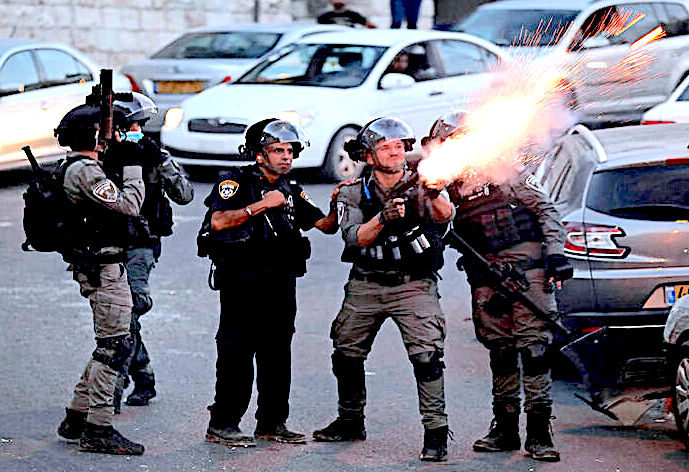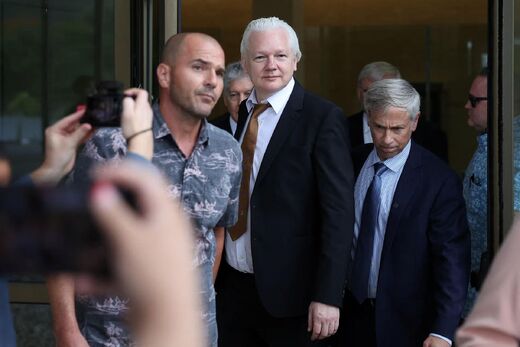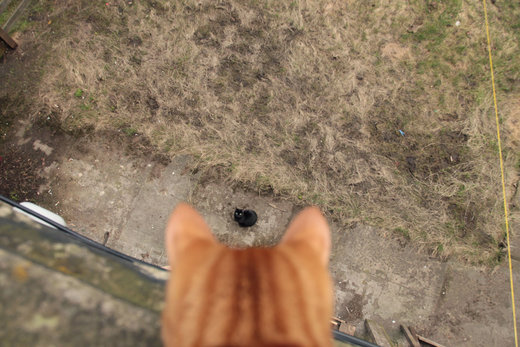Located to the south of Al-Aqsa Mosque, Silwan is one of the largest, oldest and nearest Palestinian towns to the mosque, as only the southern wall of Jerusalem, which is adjacent to Wadi Hilweh neighborhood, separates its northern entrance from the mosque.
Israeli authorities have been demolishing homes for weeks in the area to make way for a biblical theme park, known as the "City of David." Palestinians say the demolitions are aimed at driving them from Jerusalem in an attempt to further "Judaize" the city. Israeli authorities, for their part, claim the homes have been illegally built. Yet Palestinians note that receiving building permits in the area is nearly impossible.
Silwan is located just over two miles from Sheikh Jarrah, another Jerusalem neighborhood where clashes over evictions was one of the main drivers of a conflict between Hamas and Israel in May that left hundreds dead.
Historians and researchers believe that Silwan is the first nucleus on which Jerusalem was built more than 5,000 years ago by the Jebusites, a Canaanite tribe that inhabited Palestine and were the first to grow olive trees in the country.
Defense Silwan Committee member Fakhri Abu Diab told Al-Monitor:
"The Israeli authorities aim to turn Silwan into a closed military site to eliminate the Palestinian presence, particularly since the town is the first line of defense for Al-Aqsa Mosque from the southern side. There are 59,000 Jerusalemites living in Silwan, in addition to 2,800 extremist Israeli settlers based in 78 outposts.The Times of Israel reported May 26 that the Jewish Ateret Cohanim organization seeks to expel Arab residents from the area by backing various lawsuits brought by settlers. The latter argue that the lands in Silwan were the legal property of a Jewish investment fund that has been active in the area for more than 100 years.
"Silwan is at risk of forced displacement after the occupation's municipality in Jerusalem handed the residents 6,800 demolition orders, while 40% of the houses are at risk of demolition under the pretext of lacking construction permits. The goal is to besiege Al-Aqsa Mosque and move forward with the so-called Holy Basin project, which stretches from Sheikh Jarrah neighborhood to Silwan.
"Silwan town — which stretches over an area of 5,640 dunams [1,394 acres] — includes 12 neighborhoods, six of which are at risk of demolition by the Israeli army, namely the neighborhoods of Ain Lawza, Wadi Yasul, Wadi Hilweh, Wadi Rababa, Batn al-Hawa and al-Bustan where 1,550 people live and more than 100 houses are at risk of demolition in order to set up a biblical garden on its ruins.
"The Israeli authorities are exploiting the Absentee Property Law of 1950, which allows the occupation [forces] to seize thousands of houses and real estate and millions of dunams [belonging to Palestinians who left their lands]. The law aims to prevent the return of displaced Palestinians to the lands and properties they left before, during or after the war of 1948. The Jewish National Fund — also known as Keren Kayemeth LeIsrael — confiscates real estate and lands, and transfers their property to the Elad Settlement Association.
"The Israeli authorities take advantage of the confiscation of houses in Silwan's neighborhoods to dig more tunnels under Al-Aqsa Mosque, and set up Judaization projects — such as the cable car project — with the goal of imposing a new fait accompli that serves the Zionists' right to seize them.
"There is currently an ideological conflict ... over land and property in Jerusalem, which the Israeli authorities promote to show the world that they have the right to this land. Many neighborhoods in Silwan were built more than 1,000 years ago, which means before the Israeli occupation of Jerusalem. This shows that the Israeli narrative is fabricated."
Nasser al-Hadmi, head of the Jerusalem Committee for Resisting Displacement, told Al-Monitor:
"Turning Silwan into a closed military site comes amid fierce and systematic attacks on Jerusalem, including on the Sheikh Jarrah and Issawiya neighborhoods, as well as Silwan that is adjacent to Al-Aqsa Mosque. The latter includes many archaeological and historical monuments that point to the city's Islamic identity."He said that the Israeli army has installed a network of surveillance cameras, set up checkpoints and carried out many arrests against Jerusalemites to force them to leave. He noted:
"Most of the houses in Silwan were built before the Nakba of 1948, and others were built before Israel occupied Jerusalem. Yet the occupation's municipality in Jerusalem prevents Jerusalemites from obtaining construction licenses. They wait for many years for the municipality to even consider their applications, which are often rejected. The Israeli goal is to displace the residents, tighten the noose on them and confiscate their homes and lands.Commenting on the transfer of properties by Jerusalemites to the settlers, Hadmi said:
"The Israeli municipality of Jerusalem was planning to remove nearly 1,000 housing units and real estate in Jerusalem in one year. Yet it was only able to remove a few hundred. That's why it blackmails the residents and pushes them to demolish their own houses. In case a Jerusalemite refuses to demolish his house, the Israeli bulldozers do it instead and the owner has to pay a fine to the occupation municipality in Jerusalem for the demolition."
"The transfers are rare as not all Jerusalemites do that. Sometimes, these transfers take place due to the Israeli municipality accumulating debts and financial fines on Jerusalemites, which worsen their economic situation.On May 25, Amnesty International reported that the Israeli laws enable Jews to claim and prove ownership of old assets before the courts, while they deny the Arab population the same right, and prevent the return of those who left their properties after 1948.
"The occupation's municipality changed many of the street names in the old town of Silwan. It changed the Wadi al-Hilweh neighborhood's name into the 'City of David,' and the al-Bustan neighborhood's name into 'Gan Hamelekh' ['King's Garden']. The Mughrabi Gate square is now known as the 'Givati' parking lot. The goal is to falsify facts and the history of these Palestinian areas."




Reader Comments
to our Newsletter